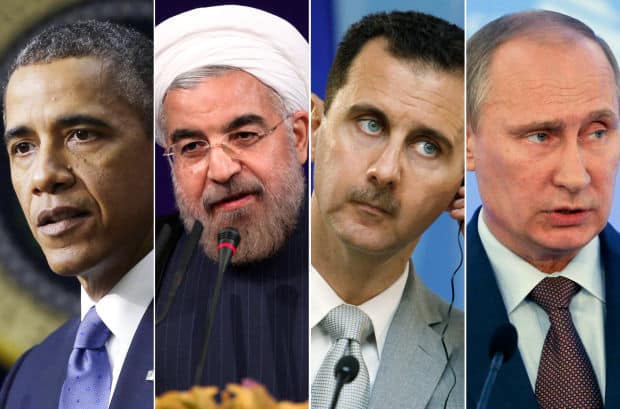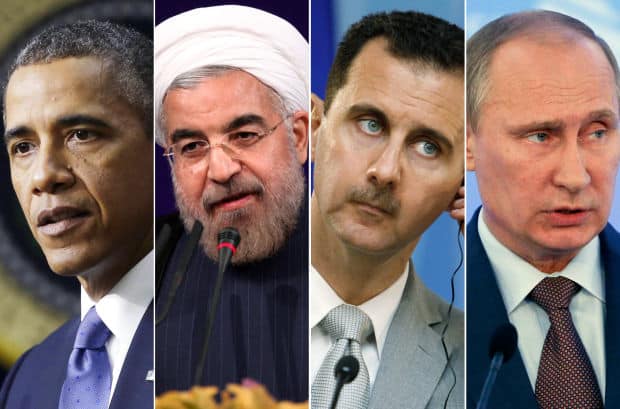As the horrific carnage in Syria continues, a depressingly familiar chorus is rising from Washington. The new consensus is the same as it was in Vietnam, Iraq, and Afghanistan: Bombing isn’t working, so let’s bomb more. A familiar coalition — generals, defense contractors, and politicians, along with think tanks and much of the press — is demanding escalation of our military campaign in Syria. There may be a limit to how many unwinnable wars the United States wants to wage in the Middle East, but it evidently has not yet been reached.
Refusing to pursue a diplomatic solution to the crisis in Syria is nothing new for the Obama administration. In 2012, the United Nations and the Arab League launched a peace process and named former UN secretary general Kofi Annan to direct it. Annan’s first proposal was that all parties to the conflict meet for discussions. The United States flatly refused. Our policy then was to reject all contact with the Syrian government or any faction that did not announce in advance that it supported the overthrow of President Bashar Assad. Making that political point was considered more important than stopping the killing. Annan recognized that the US position doomed his mission, so he abandoned it. If the United States had placed peace ahead of misguided principle in 2012, much of Syria’s agony might have been avoided.
This callous disregard for the destruction of a nation and the suffering of its people has remained central to US policy toward Syria. Hillary Clinton, who as secretary of state delivered the message to Annan that the United States would not join his peace effort, is among those calling for escalation. In one of her e-mails as secretary of state, Clinton asserted that deposing Assad would be “a massive boon to Israel’s security” and that “only the threat or use of force will change the dictator Bashar Assad’s mind.” She wants to impose a no-fly zone over parts of Syria, which could lead to the shooting down of Russian planes — a prospect that has some in Washington salivating. General Martin Dempsey, until recently the chairman of the Joint Chiefs of Staff, has estimated that establishing and protecting this no-fly zone would require the deployment of up to 70,000 troops.
Secretary of Defense Ashton Carter has gone so far as to suggest using NATO forces to invade Syria. That might be expected from the man who runs the Pentagon, but he is hardly alone. Last month, 51 State Department employees signed a letter calling for a more militarily assertive US role in Syria. The specter of professional diplomats pushing for war over diplomacy is further proof, if any is needed, of the Pentagon’s absolute triumph over the State Department in setting American security policy. It also suggests that these diplomats can read the political winds and have concluded that embracing militarism would help their careers in a new Clinton administration.
Fair use excerpt. Read entire article here.


